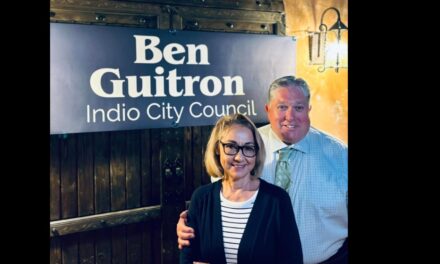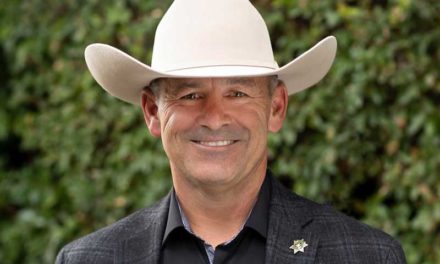Residents in Indio and Cathedral City will for the first time in November vote by district instead of at-large. Now, Palm Springs is considering following suit after receiving a letter alleging the city elections could be racially polarizing.
The City of Palm Springs is holding a special meeting on April 19 to discuss whether the city should move from at-large to
district elections.
The 6 p.m. meeting will be held in the Council Chamber at City Hall, 3200 E. Tahquitz Canyon Way. Public comments are welcome.
On March 5, the City received a letter from an attorney representing the Southwest Voter Registration Education Project and its members residing in Palm Springs that alleges the city is in violation of the California Voting Rights Act due to its process of at-large elections instead of district elections to elect members of the City Council. The letter requests the City of Palm Springs switch to at-large elections or face judicial action.
The letter also alleges that the at-large election process has diminished the ability of Latino residents to impact elections and has resulted in racially polarized voting.
A determination of whether Palm Springs, or any other elected governmental body, is in violation of the California Voting Rights Act is based on an analysis of the relevant facts which are considered under law. The Southwest Voter Registration Education Project cites Palm Springs’ large Latino population and historic lack of Latino representation on the City Council as an example of evidence for their claim.
They did not include a demographic analysis in support of their claim of racially polarized voting and did not mention that one has been performed, according to a statement the city issued.
Although a court would likely consider the totality of the circumstances to determine if a violation of the California Voting Rights Act exists, the key legal questions considered include whether the protected minority groups voters have a diminished “ability to influence” election outcomes and whether there is evidence of “racially-polarized voting.” Those determinations require a detailed demographic analysis as the facts are the basis of any legal judgment as to whether a violation exists, according to the city.
It should be noted that creation of a district where a protected minority group is the majority is not required under the California Voting Rights Act.
While it is important to obtain the demographic information prior to making any decision or recommendation, it should be noted that no California city served with a notice of violation of the California Voting Rights Act has won in Court, and sustained an at-large election system for all members of the City Council. Each city that has fought district elections has lost and been required to pay both sides’ attorney fees and costs in their losing effort. These fees can and often do run into
millions of dollars.
Most California cities with City Councils elected at-large, upon receipt of a Voting Rights violation notice, have chosen to voluntarily switch to districts. A few cities have chosen to fight this request. In one of the significant cases, the city of Palmdale, in 2012, lost and was ordered to switch to district elections. Palmdale paid millions in legal fees to plaintiff and defense counsel and had their districts drawn not by their City Council after input from their residents, but by plaintiff’s counsel. Recent changes in the law make it even more difficult to win these lawsuits than it was in 2012.
Since receiving the letter, there have been meetings involving the city attorney, the City Council sub-committee of
Councilmembers Geoff Kors and Lisa Middleton and an outside expert counsel. The city has engaged a demography expert to fully understand and document voting patterns by ethnicity and geography, and will share the results at public hearings once it receives them. The statement said the city intends to fully understand every legal and financial decision that is before us, and provide that information to our residents.
Most importantly, the statement said, “We remain committed to diversity and inclusion, and will proceed in a manner that
is consistent with the law and our values. Long before receipt of this letter, the city took steps to make diversity and inclusion a priority. In 2016, we created an Ethics, Transparency and Government Reform Task Force. We have already implemented many of the Task Force’s recommendations. Over the past few months, the government reform working group and the diversity and inclusion working group have met to finalize recommendations to ensure our elections best serve our residents, and that our government reflects the diversity that is Palm Springs. As always, we are committed to making decisions in an open and transparent manner that are in the best interests of our residents.”
Palm Springs Unified School Board and College of the Desert Board of Trustees have also moved to district elections.
Residents can watch the meeting live on Palm Springs Community Television Channel 17 or online at www.palmspringsca.gov.







